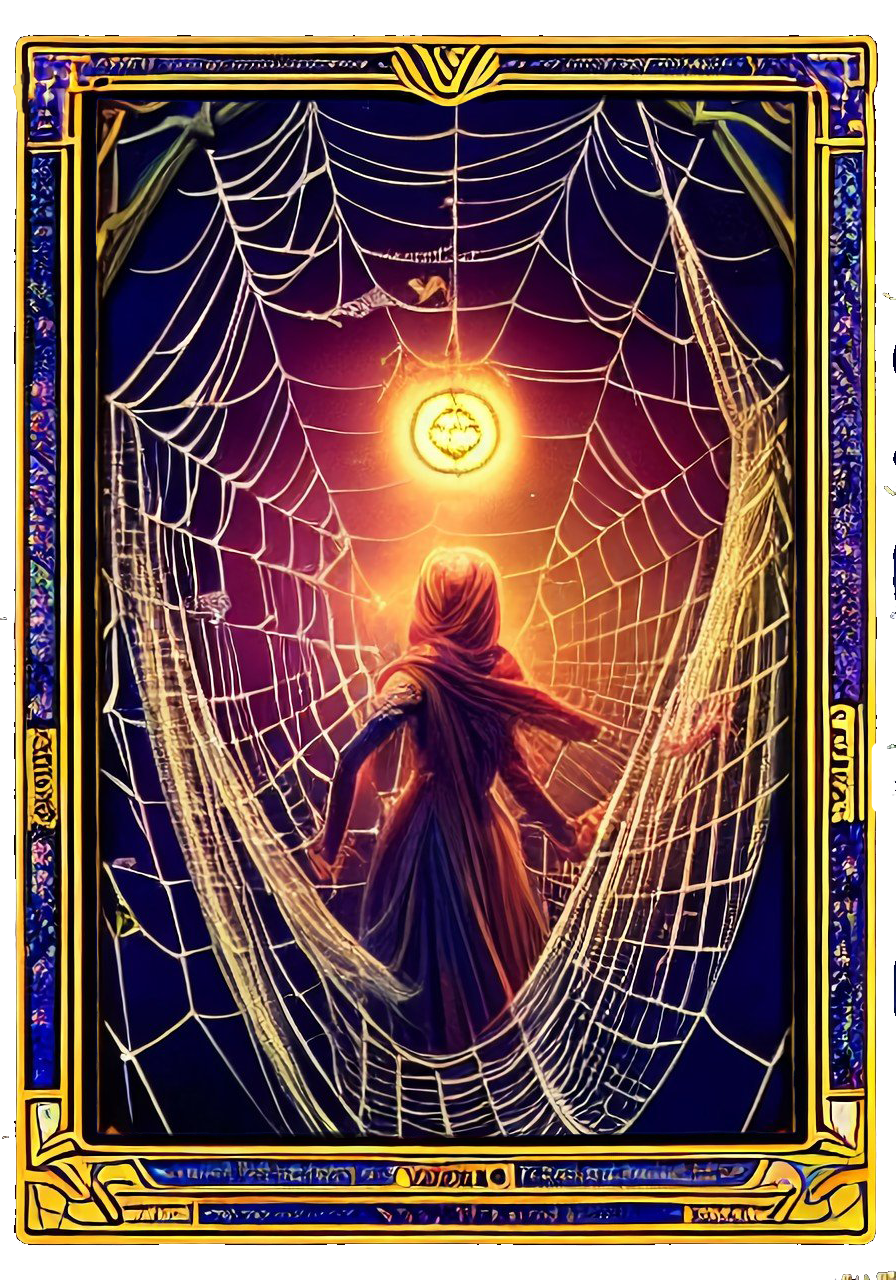When used as a proper noun, Fate refers to one of the fundmental forces of reality. Although often personified as the sister of Destiny, Fate is generally understood to be a sort of universal law rather than a conscious intelligence. Where Destiny rules what will become of every being in creation, Fate plays a large role in determining how and when those events play out. Fate is often likened to a spider, weaving a web of possibilities around creation that guides each creature to its destiny. In this analogy, mortals travel along the strands of the web. Places where two or more strands meet represent potential turning points in a person's life. When someone reaches one of these points, Fate will arrange events in an attempt to push them along a particular strand, but they can still exercise free will to take a different path. The end result will always be whatever outcome Destiny ahs foretold, but the interplay of Fate and choice determines the partculars journey.
As a common noun, a fate refers the significant events that can affect which with a person take when they reach one of the intersection points along Fate's web. For example, Molak the Merchant may be fated to spot a white stag while traveling through the forest. Since the encounter occurs at one of the points where Molak can move from one strand of the web to another, his choices (and the choices of other creatures present, if any) will determite which strand Molok's life will follow once the encounter is over. If he ignores the stag, he continues along the path he was already following. If he follows the stag from a safe distance the creature might lead him to a hidden treasure. If he kills the stag, his life might be unchanged except for a delicious meal of venison or he might find himself hunted by the local tribe that venerates the white stag as a messenger of the gods. In most cases, Fate will have stacked the deck to encourage a particular outcome--for example, "she" may give Molok a craving for venison or arrange events so that a tribesman is in a position to see Molok fire the arrow that kills his tribe's sacred deer. Essentially, Fate sets forth a path of least resistance for events to take, but human choice can alter the outcome.
To a
Fatespinner, a fate is an even more concreate noun, because they can not only sense these turning points, but capture them in objects and tranfer them to other times, places, and people. For instance, a Fatespinner who capture's Molok's stag encounter in a
Czilkir Card removes the encounter from Molok's path, effectively hiding the branches in the web from Molok at the intersection point. Once the Fatespinner has captured the fate, they can place it in a different person's path, place it back on Molok's place at a different time or a different place (which usually changess the path of least resistance for the event), or even pick apart particular elements of the fate and combine them with pieces of other fates to create completely new turning points that can be manipulated just like a "natural" fate.




Comments